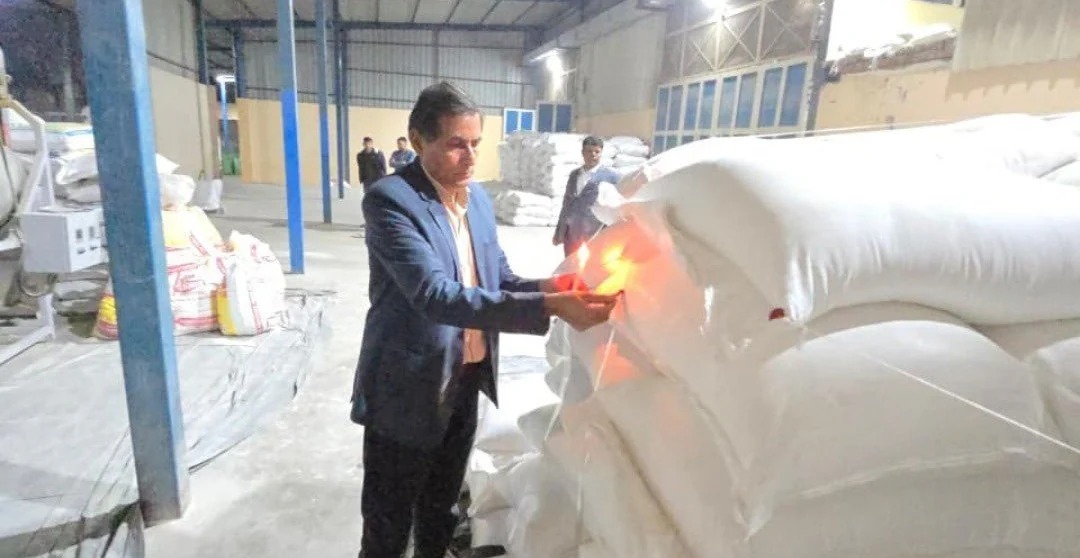Hypertension affects more than one billion people worldwide. In India too, it is one of the leading lifestyle diseases, which can lead to serious cardiovascular diseases, including heart attacks and strokes. It is a condition when blood pressure levels are elevated consistently. World Hypertension Day, observed every year on May 17, is a global initiative aimed at raising awareness about hypertension and its impact on public health. Organised by the World Hypertension League (WHL), this day serves as a reminder for individuals, healthcare professionals, and policymakers to prioritise prevention, early detection and management of hypertension.
Also Read: 5 Everyday Foods That May Help Manage High Blood Pressure
World Hypertension Day 2023: Theme
World Hypertension Day is celebrated annually with different themes but focuses on making people aware of the various aspects of the health problem. This year's theme is "Measure Your Blood Pressure Accurately, Control It, Live Longer," which highlights the problem of inaccurate and delayed blood pressure measuring that needs to be addressed.
World Hypertension Day: History And Significance
World Hypertension Day was launched in May 2005 by the World Hypertension League (WHL), which was incorporated in 1987 under the aegis of the International Society of Hypertension (ISH). The primary objective of World Hypertension Day is to promote public awareness and encourage people to take control of their blood pressure through regular monitoring, lifestyle modifications, and appropriate medical care, considering hypertension often shows no symptoms until it reaches a critical stage.
Despite being a preventable and manageable condition, hypertension continues to be a significant global health burden. Besides regular exercise, a healthy diet can considerably help in regulating high blood pressure. Health experts all over the globe suggest some important things to do and avoid in your hypertension diet.

Timely and accurate blood pressure measuring is important.
Photo Credit: iStock
Symptoms Of Hypertension:
For most people, hypertension remains unnoticed, silently wreaking havoc on their health. However, when blood pressure reaches dangerously high levels, symptoms begin to emerge, serving as warning signs of an impending crisis.
The importance of regularly checking your blood pressure cannot be overstated. It is the most reliable way to identify and monitor hypertension. Failure to address high blood pressure can lead to a cascade of other serious health conditions, including kidney disease, heart disease, and stroke.
When blood pressure soars to extremely elevated levels, typically at 180/120 or higher, individuals may experience a range of alarming symptoms. These can include:
- Severe headaches that feel like a vice squeezing the skull.
- Chest pain that grips the chest with unbearable pressure.
- Dizziness that leaves one feeling disoriented.
- Difficulty in breathing that instils a sense of suffocation.
- Nausea and vomiting may also occur, adding to the distressing mix.
- Vision changes, such as blurred vision, may further exacerbate the situation.
- Sense of anxiety and confusion.
- Some individuals report a persistent buzzing sound in their ears, while others may suffer from nosebleeds and abnormal heart rhythms.
If you find yourself experiencing any of these symptoms alongside high blood pressure, it is crucial to seek immediate medical care. Time is of the essence in mitigating the risks associated with hypertension.
Also Read: Top 10 Natural Foods to Control High Blood Pressure

Hypertension can be manged with a good diet.
Image Credit: iStock
Here Are Dos and Don'ts for Hypertension Diet:
Dos:
1. Increase Consumption Of Fruits And Vegetables:
Make sure to eat fresh, especially seasonal fruits and vegetables. These give us potent vitamins and minerals and fibre, which can help lower blood pressure. Aim for at least five servings per day.
2. Opt for whole grains:
Pick whole wheat, brown rice, quinoa, and oats over refined grains to get more fibre and good carbohydrates.
3. Eat lean proteins:
Proteins are known as the building blocks of the body. While all meats provide a good amount of protein, it is important to select lean sources of protein to avoid high-fat content. Pick fish, poultry, legumes, and tofu instead of red meat.
4. Don't eat too much salt
Limit salt content in your meals and be wary of excessive sodium in processed foods. Too much sodium is bad news for your blood pressure levels.
5. Consume Only Low-Fat Dairy Products:
Aim to consume toned or skim milk, and low-fat yogurt and cheese to obtain calcium and other nutrients without saturated fats.
Also Read: Why Eating Bananas Every Day Is A Good Idea If You Have High Blood Pressure
Don'ts:
1. Avoid processed foods:
Processed and packaged foods contain high amounts of sodium, unhealthy fats, preservatives and added sugars, which can contribute to hypertension.
2. Cut down on sugary beverages:
Soda, energy drinks, and fruit juices are loaded with excessive sugar. Choose healthier drinks like coconut water, fresh juices and lime water.
3. Say no to junk food:
Avoid fried and processed foods as much as possible. They are high in saturated and trans fats, which are harmful to overall health.
4. Adopt moderate drinking:
Excessive alcohol intake can raise blood pressure levels. So, drink moderately and occasionally.
5. Bring down caffeine content:
While moderate caffeine consumption is generally safe, too much tea and coffee in a day can temporarily raise blood pressure.
Manage hypertension the right way by following these diet dos and don'ts.
About Neha GroverLove for reading roused her writing instincts. Neha is guilty of having a deep-set fixation with anything caffeinated. When she is not pouring out her nest of thoughts onto the screen, you can see her reading while sipping on coffee.







